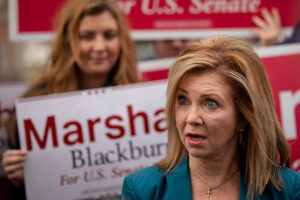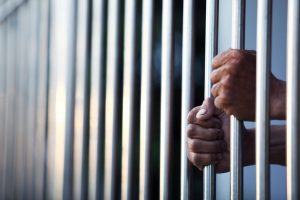While COVID-19, economic downturn and protests against police brutality have turned many lives upside down, most lawyers are still doing great (financially, at least). But how many are doing good?
Quite a few, it turns out. I am happy to say that I know of hundreds of lawyers who have volunteered to help vulnerable people escape lonely, painful, and completely unnecessary prison deaths.
When COVID-19 began to spread in our nation’s federal prisons, the organization I lead, FAMM, joined with the National Association of Criminal Defense Lawyers (NACDL) and the Washington Lawyers’ Committee for Civil and Urban Affairs (WLC) on an emergency project to get as many sick and elderly people as possible out of harm’s way. We knew a viable mechanism existed called the federal compassionate release program.
For nearly 40 years, the federal government’s compassionate release program has given people in prison the chance to apply for early release if they could demonstrate they were dying or suffering from a debilitating, chronic illness. Until very recently, however, the federal Bureau of Prisons (BOP) controlled compassionate release, and it routinely ignored or denied everyone who requested compassionate release. Jailers gonna jail and all.
But in 2018, President Donald Trump signed the First Step Act, which included a provision to allow people in federal prison and their families to appeal BOP denials in federal court. The new law also said prisoners could go to court if the BOP failed to respond to their application within a reasonable time. Thousands of sick and elderly prisoners, many of whom did not need to be in prison any longer and who were now being targeted by a deadly disease, finally had a legitimate shot at early release.
Our organizations were ready to help them. Two problems: We had no money and no staff. We simply were not in a position to represent thousands of people who needed to file motions in federal court. What we needed were lawyers — check that, free lawyers — and lots of them. We started something called the Compassionate Release Clearinghouse with the goal of recruiting and training pro bono lawyers to represent federal prisoners and their families, especially in areas where the nation’s amazing federal public defenders were swamped.
That was in March. Over the past six months, hundreds of attorneys at law firms around the country have answered the call. They have donated thousands of hours to help at-risk federal prisoners and their anxious families try to secure compassionate release.
Some firms stepped up big time. Sidley Austin volunteered teams of paralegals to help screen the thousands of requests for help that poured in, and dozens of lawyers at the firm stepped up to represent prisoners. Talented attorneys from other firms, including DLA Piper, Blank Rome, Zuckerman Spaeder, Epstein Becker & Green, Mayer Brown, Jones Day, and Venable undertook representation of individuals in federal prisons across the country. Many knew little to nothing about compassionate release, but they were eager to receive training and start taking cases as quickly as possible.
Their efforts are saving lives. More than 1,400 vulnerable people have been granted compassionate release from federal prison this year. (Just 125 won early release last year.) These releases have also saved taxpayers millions of dollars.
Families have expressed overwhelming gratitude for the pro bono attorneys and federal defenders who rescued their parents, spouses, and children from dying alone in a prison cell. The volunteer lawyers have said the experience has changed their lives, too.
Elizabeth Bailey, an associate at Buckley LLP in Washington, D.C., won release of a man who was in a persistent vegetative state. She convinced the court that his continued incarceration served no purpose, especially during a deadly pandemic. After the ruling, Bailey said, “There was so much emotion and relief. When you work on something like this, you end up getting to know the most intimate details of a client’s life. You think about them when you’re not working, wonder how they are doing and worry for their family.” Even after the pandemic passes, she said, her work with the Compassionate Release Clearinghouse “will continue to color my practice and, indeed, my life.”
Sounds a bit more fulfilling than doc review.
We and our partners are immensely grateful to all of the attorneys and firms who have given, and continue to give, of their time and talent to help the families with whom we work. Their generosity belies every cliché about lawyers. They didn’t seek any recognition, but they certainly deserve some -– and now they’ve gotten it.
If any attorney or firm is interested in volunteering for the Clearinghouse, please contact Mary Price at mprice@famm.org.
Kevin Ring is a former Capitol Hill staffer, Biglaw partner, and federal lobbyist. He is currently the president of FAMM, a nonprofit, nonpartisan criminal justice reform advocacy group. Back when ATL still had comments, “FREE KEVIN RING” was briefly a meme. You can follow him on Twitter @KevinARing.




 Olga V. Mack is the CEO of
Olga V. Mack is the CEO of 













